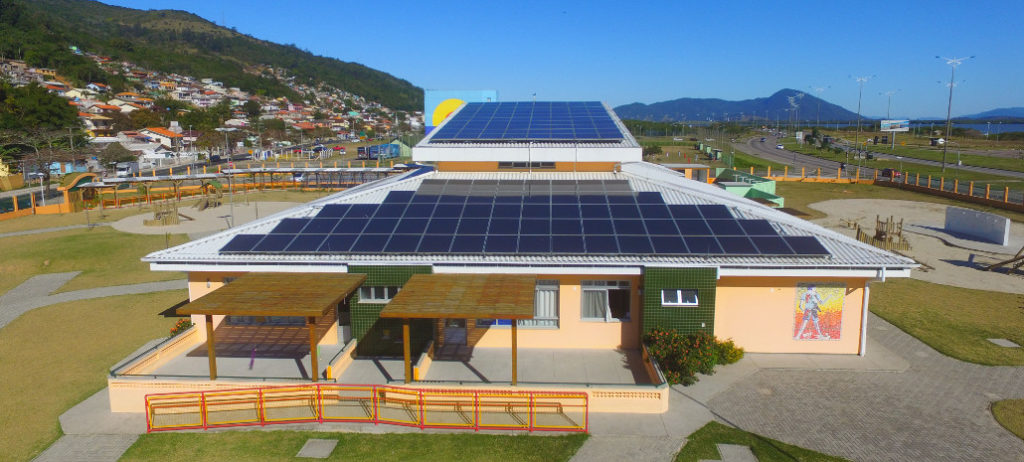The prices of distributed generation PV systems are falling very rapidly in Brazil. This was revealed by a new report by Brazilian consultancy Greener, according to which the prices of PV systems in this segment (up to 5 MW) fell by 24% last year.
The consultancy reports that the average price of an 8 kW system, for example, fell by 26%, from R $7.08 ($2.2)/Wp in January 2016, to R $5.21/Wp in January of this year.
It is interesting to note here that last January, costs for the integration of PV systems represented approximately half of total system costs, while this January, that percentage was reduced by 36%.
For a 50 kW system, the price fell year-on-year by 25%, from R $5.88/Wp, to R $4.39/Wp, while that for a 300 kW installation fell by 23%, from R $5.31/Wp, to €4.07/Wp.
According to the report, the total turnover of the residential, commercial and industrial PV market in Brazil in 2017 reached approximately R $1.47 billion ($462 million), with a total capacity of around 297 MW.
The report, which is based on data collected from 552 member companies between November 29, 2017, and January 2 of this year, also states that imports of solar modules and kits for distributed generation reached higher volumes in the second half of last year – approximately 227 MW – while in the first half of 2017, the total had been about 105 MW.
In general, imports of modules and kits for distributed generation accounted for 35.1% of total panel imports last year in Brazil. Despite having sold about 298 MW of the total imported modules, which was 329 MW, the connections to the grid of distributed generation PV systems (up to 5 MW) reached a total of around 100 MW last year, according to Greener.
The consultancy also says that approximately 40% of the interviewed PV system installers are not satisfied with the current state of the market. The report's authors point out, however, that this percentage in May of 2017 was around 50%, evidently a sign that the market is evolving in a positive way also due to higher revenues.
Furthermore, 67.9% of installers say they are very optimistic about the development of their businesses in 2018, with only 3% judging the market unattractive.
According to installers, the biggest challenges are currently the pressure on prices (39.3%), the lack of financing options (25%), misleading advertising (15.5%) and products of low quality (14.8%). Only 4.5% said that the market currently does not present any challenge.
The report also provides more information about the growth of the sector, the challenges in module supply, prices of PV kits, contracts, financing options, among other information about market players and the economic sustainability of system installers.
In other news, Brazil has joined the International Renewable Energy Agency (IRENA). In a statement on its website today, it said that the Brazilian Government has notified the agency that it is commencing the formal procedure of accession to become a full member.
“Brazil’s decision to seek IRENA's membership reflects the country’s strong commitment to multilateralism and sustainable energy. A pioneer in bioenergy and one of the leaders in wind and hydro in Latin America, Brazil has a vast, diverse and growing renewable energy portfolio which positions it to play a key role in the global energy transformation underway.” said Adnan Z. Amin, IRENA Director-General.
This content is protected by copyright and may not be reused. If you want to cooperate with us and would like to reuse some of our content, please contact: editors@pv-magazine.com.




By submitting this form you agree to pv magazine using your data for the purposes of publishing your comment.
Your personal data will only be disclosed or otherwise transmitted to third parties for the purposes of spam filtering or if this is necessary for technical maintenance of the website. Any other transfer to third parties will not take place unless this is justified on the basis of applicable data protection regulations or if pv magazine is legally obliged to do so.
You may revoke this consent at any time with effect for the future, in which case your personal data will be deleted immediately. Otherwise, your data will be deleted if pv magazine has processed your request or the purpose of data storage is fulfilled.
Further information on data privacy can be found in our Data Protection Policy.